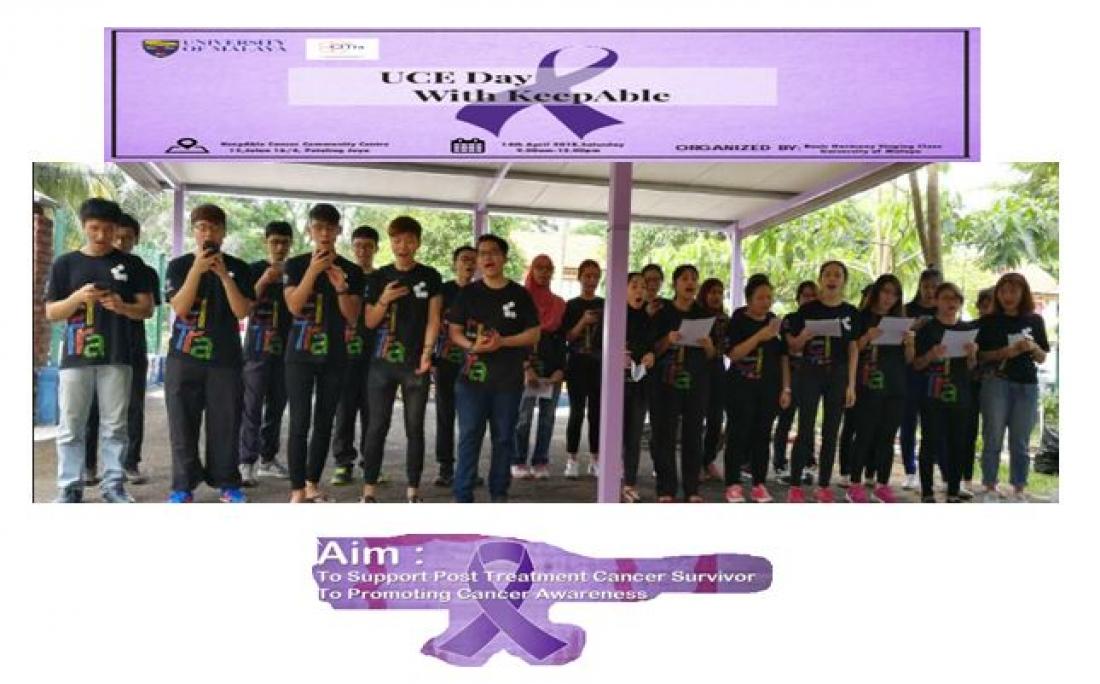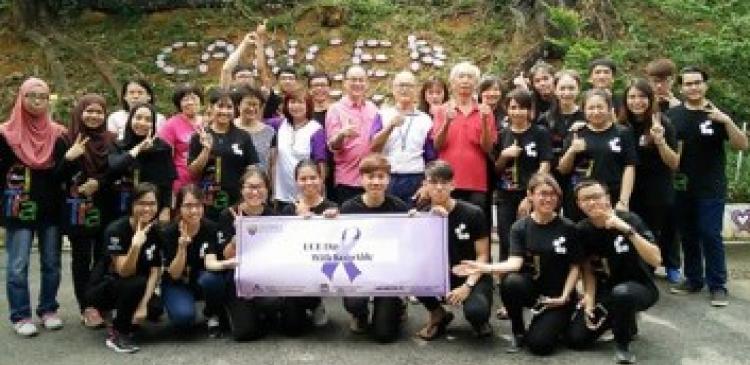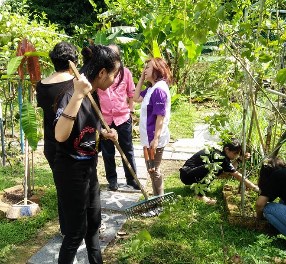University Community engagement at KeepAble Cancer community
Research has demonstrated that community involvement in schools leads to improved academic and behavioral outcomes for the children, whereby one study reported family participation in education was twice as predictive of students’ academic success as family socioeconomic status. More intensive programs were shown to have effects that were 10 times greater than other factors. Students who are actively ‘engaged’ play a meaningful role in the discussions, decision-making and/or activation of implementation of projects or programs to sustain the community initiatives.
Student engagement in the community initiatives can be defined as, the participation of students in a regular, two-way, and meaningful communication involving students’ academic learning, personal development and co-curriculum activities with the communities which are initiated by academicians. Successful university-community partnerships are never silo, but should be integrated into the everyday activities of the university’s lecturers. University management should also support the community initiatives to help facilitate sustainability.
University students’ engagement in the community are important for holistic personal and professional development. A well-designed community engagement effort allows them to identify and understand the adaptation and accommodation, differing values and priorities, differing frames of reference or ways they view the community or a particular population group such as cancer survivors. The students will learn about various alternatives and consequences from their actions or inactions, as well as different ideas and potential solutions and actions, characteristics and challenges of the issue at hand such as stigma of cancer, transportation issues, needs and myths. However, more evidence is needed to show the relationship with academic or personal development and the impact on the community that they have engaged, as not many studies have been conducted on the impact of community engagement.
The UCE Day with KeepAble cancer community centre was conducted by several groups. On the 14th April 2018, a total of 35 undergraduates led by Ng Yong Keng from Basic Harmony Singing Class, University of Malaya, helped to clean up the KeepAble cancer Centre and entertained the survivors with two songs they have prepared for the past 7 weeks. From march till may 2018, a group of 90 students take turn to help out and participated with a Yee sang cultural event with survivors. A batik painting session was also conducted with fellow survivors. The students were mindful of the mission of the place for cancer survivors, and tries to destigmatize cancer as well as being supportive and volunteered with the activities. This provides a good medium of training for early multidisciplinary cooperation and respectful work as they were from various faculties. They learn to mingle with the community and try to understand the challenges by facilitators as well as how to sustain a community which has been initiated. They listened to cancer survivors’ sharing of recognition symptoms and preventive strategies too. This exposure helps them in small advocacy work on cancer control and supportive care program. The university community engagement, initiated and monitored by CITRA University of Malaya, is a good learning platform for student volunteerism.
In summary, empirical evidence suggests that university should remain committed and supportive towards healthy students and community involvement which are ongoing, as they have already been initiated by academicians with part time staffing, and relevantly skilled staff. The management should facilitate and encourage more opportunities to bring students’ volunteerism into the community - an aspect of the lifelong learning plan to achieve transformation within our student generation and to harness their skills to ‘give back to the community’. University students need to learn how to be an engaged volunteer in the community to help make the world a better place for everyone.
Contact information and faculty address:
Associate Prof. Dr. Loh Siew Yim
Department of Rehabilitation Medicine
Faculty of Medicine, University of Malaya
50603 Kuala Lumpur
Malaysia
E-mail: [email protected]





